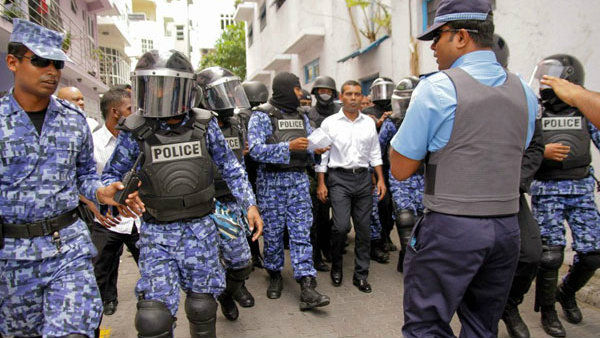Comment: Did former Maldives leader receive a fair trial?
In such a politically charged case, media reporting can take a sensationalist and selective approach, writes Toby Cadman. “As with all cases, there are two sides to any argument, but the government’s position has not been given any attention and the offence for which the former president was convicted has been unnecessarily trivialized.”

10 Jul 2015, 16:30
Minivan News
This comment piece by Toby Cadman was first published on Al-Jazeera. Republished with permission.
Cadman is an international lawyer and is currently advising the government of the Republic of Maldives on legal and constitutional reform. In particular, he is assisting the government in responding to the allegations made to the UN by former President Mohamed Nasheed concerning his conviction for an offence of terrorism.
On March 13, the former president of the Republic of Maldives, Mohamed Nasheed, was convicted of terrorism. He was sentenced to 13 years imprisonment for ordering the army to arrest and detain the Chief Judge of the Criminal Court Abdullah Mohamed. It was alleged that Abdullah was abducted by the army without any lawful order, held incommunicado for 72 hours, and then detained for a further 21 days in a military establishment.
There was national and international outcry at such an unprecedented attack on the judiciary, including statements from the United Nations terming the detention of the judge as arbitrary and in breach of international law.
Become a member
Get full access to our archive and personalise your experience.
Already a member?
Discussion
No comments yet. Be the first to share your thoughts!
No comments yet. Be the first to join the conversation!
Join the Conversation
Sign in to share your thoughts under an alias and take part in the discussion. Independent journalism thrives on open, respectful debate — your voice matters.




